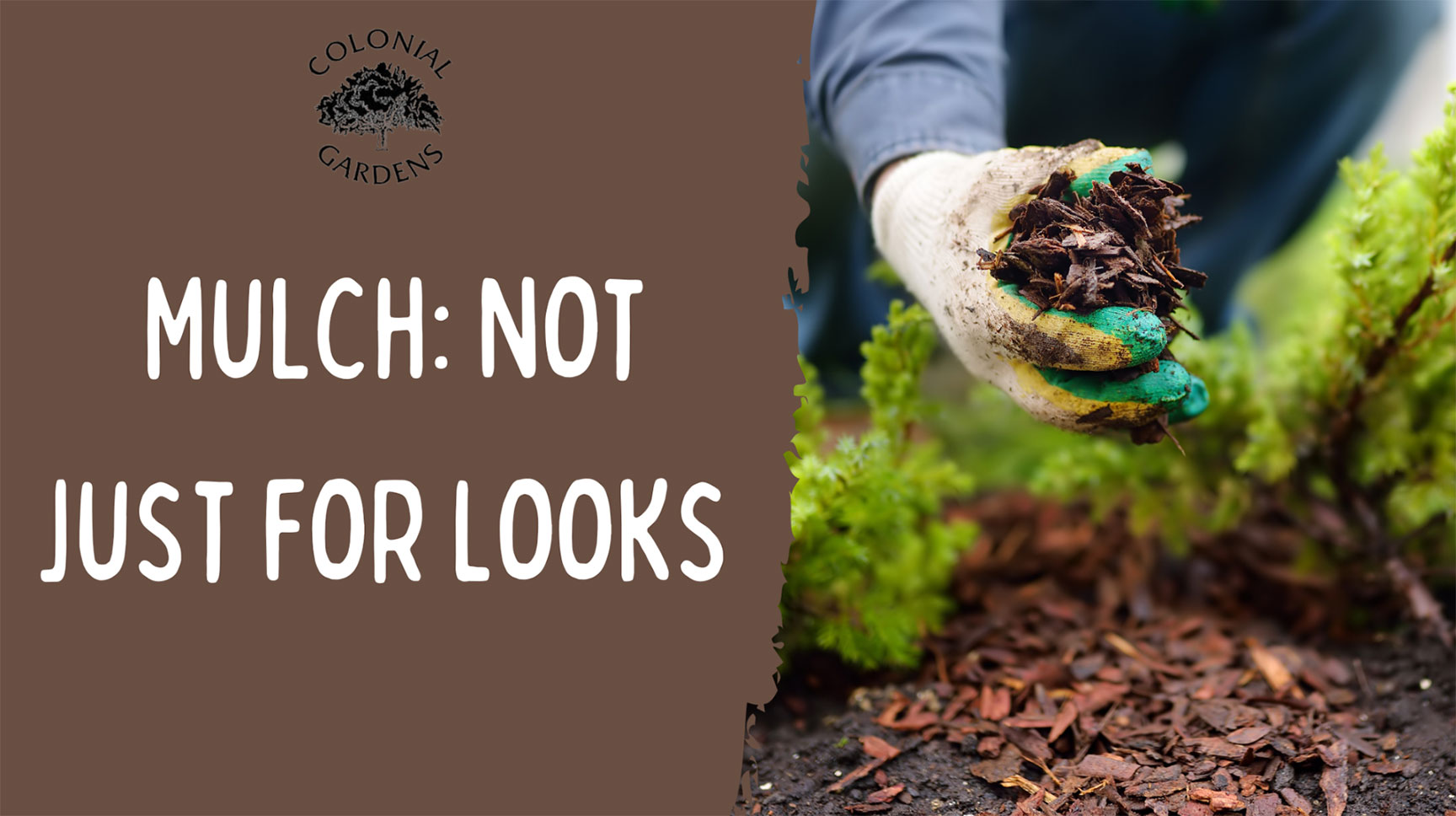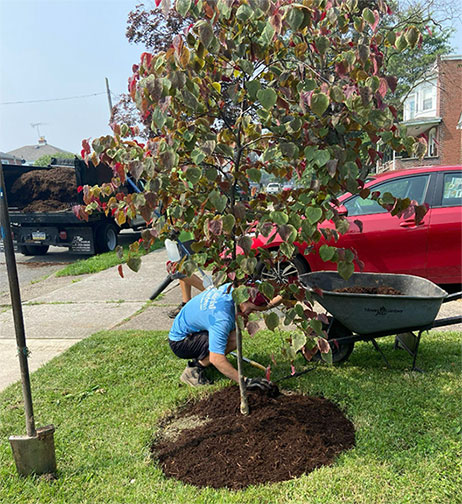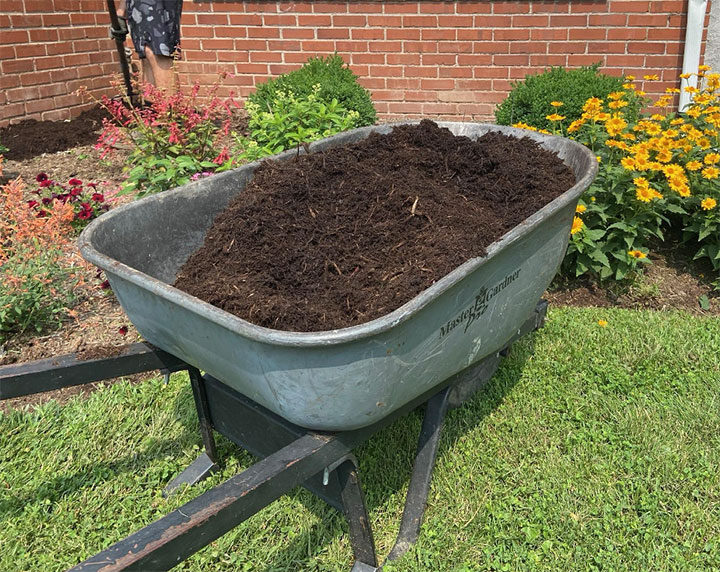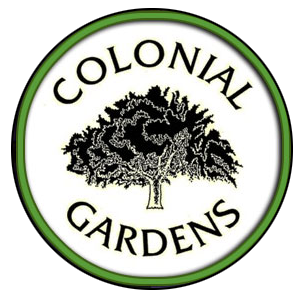
Picture it: lush, green foliage, bright and bold blooms, contrasted against a uniform background. Mulch certainly offers a clean and polished look, but it’s the practical benefits that make it worth spending the money on it.
The definition of mulch is pretty loose, but here at Colonial we carry a variety of bagged and bulk shredded wood mulches. These mulches have the following benefits:
Increased Survival of Plants: Putting down a layer of mulch around new plants helps protect the roots from sun damage and extreme temperatures. We especially recommend mulching around new tree and shrub plantings in the fall, which will help insulate the roots from harsh temperatures. Mulch can also reduce evaporation during the heat of summer, keeping moisture in the soil where the plants can access it.
Build Soil Structure: Plants use the nutrients and microscopic life in the soil to grow. In nature, leaf litter and rotted wood add more nutrients and a natural soil structure as they break down. Applying a layer of mulch adds those natural materials to the surface, breaking down over time to help feed your plants and protect your topsoil from eroding away. Choose a finer grade mulch like ICBIN over dyed mulch for faster breakdown or use leaf litter or grass clippings from your yard.

Weed Suppression and Disease Protection: Many seeds need light to germinate. Adding mulch can smother out weed seeds before they start, making yard maintenance that much easier. Mulch is also great at reducing splashback of soil when you water. Plants like tomatoes are susceptible to soil-borne diseases, often spread when soil splashing onto their leaves. Add a layer of mulch to your veggie garden to protect your plants from disease and reduce issues like bloom-end rot, which can be caused by inconsistent watering.
Mulch It Right:
There is such a thing as too much of a good thing. We do not recommend mulching deeper than 3 to 4” deep. That measurement includes any existing mulching. Deeper mulching prevents water from penetrating down to the roots of the plants and gives critters the opportunity to burrow in your beds.
A common error that we see in mulching around trees is the dreaded volcano mulch. Pushing decaying material up against the trunk of a tree is dangerous for the tree. The trapped moisture can rupture the bark, allowing insects and disease into the tree. Instead, mulch should stay away from the trunk of the tree and cover the roots out to the drip line. Picture your mulching more like a donut. The tree is in the donut’s hole with a few inches between the bark and the mulch.
Our Favorite Mulch:
Our favorite mulch is our ICBIN, which is sold in bulk by the yard. This aged bark is a finer shred than basic hardwoods and is resistant to artillery mold. Because it’s finer, ICBIN is an ideal choice for sloped areas. ICBIN is a natural brown color. Don’t need that much mulch? The closest product in bags is our Premium Hardwood mulch, a triple shredded bark mulch.
Alternative mulches include natural materials from your yard like leaves and grass clippings. Be sure to remove diseased leaves or leaves with heavy insect damage to reduce these problems spreading to your new plants. While stone can be an attractive option for your garden beds and is technically “mulch,” it will not add to the soil structure and is a pain to remove if you ever decide you don’t want it anymore.
Spring is the perfect time to mulch! Take advantage of free delivery on 5 or more yards of mulch during Mulch Madness from March 1 to April 15.

